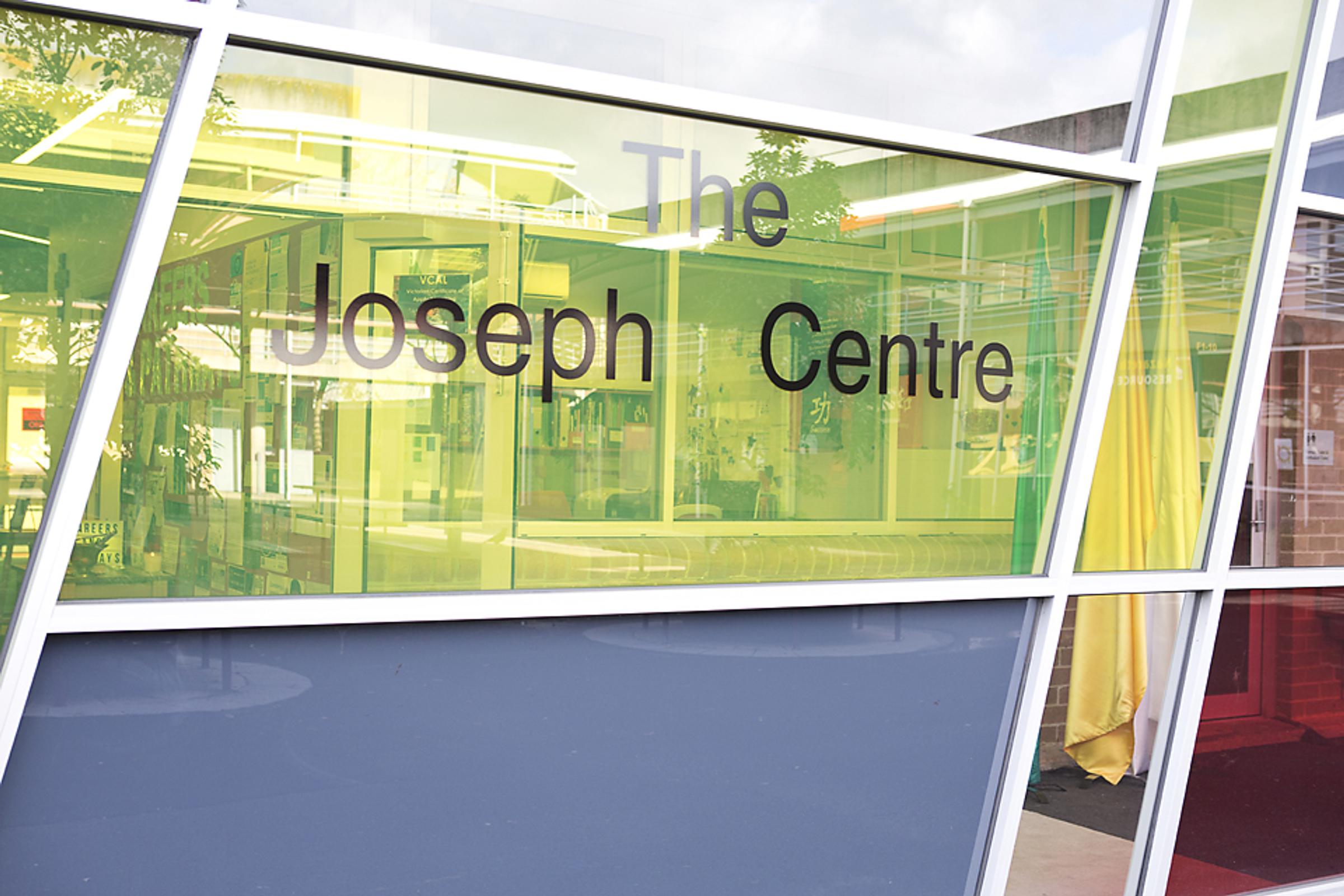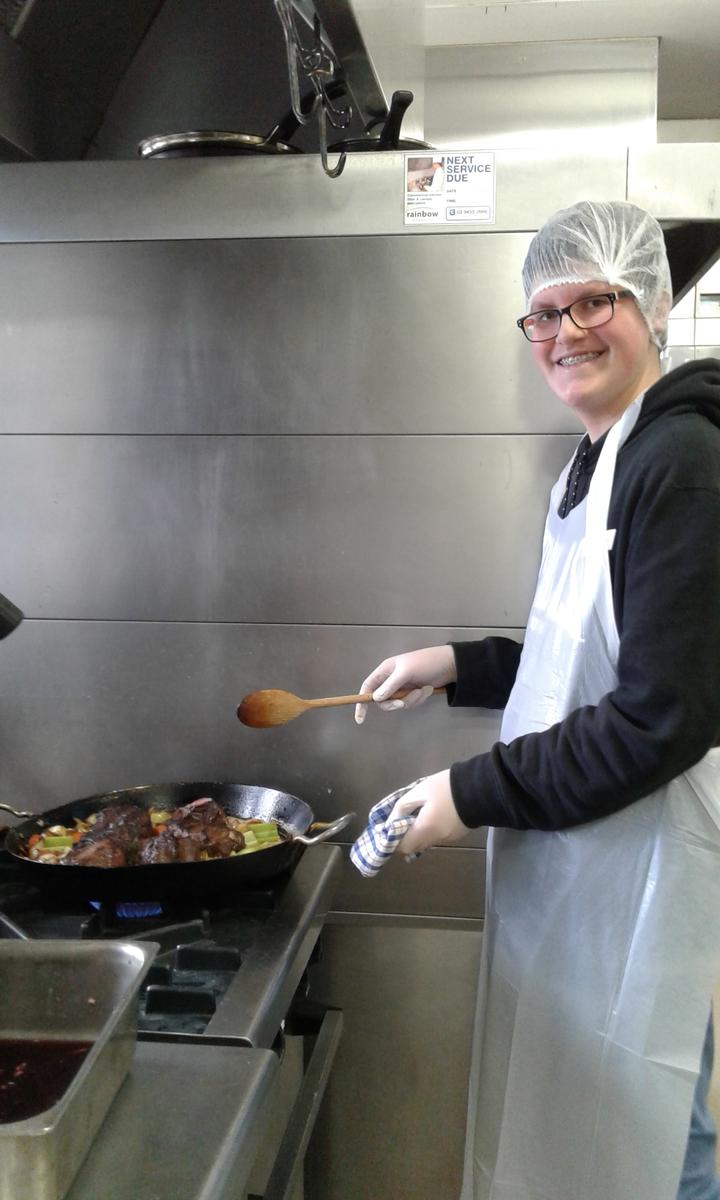Applied Learning News

Year 10 LEAP and VET & VCAL Students for 2019
All students who selected a VET Course at TAFE for next year need to ensure Ms Caitlin Mackay knows which TAFE or School you wish to attend as the enrolment process commences next week. Please email mackc@nazareth.vic.edu.au or drop in to see her in the Joseph Centre.
It is not to late for students to select a VET course as part of their Senior School program. See Ms Pellegrino for a Change of Subject Form and see Ms Mackay or Elena for information about VET Courses.
Dream Year 10 courses
This semester, 10 of our students are undertaking half a day of training in either Engineering and Electrical Studies or the Hospitality Industry. Combining theory with hands-on learning is a key element of programs designed for our LEAP students.
War on Waste
Both VCAL classes are continuing to research waste issues and their impact on the environment. They are devising ways we can extend the attitudinal and behavioural change further than the Joseph Centre.
Mixed Recycling
Our new Mixed Recycling Wheelie Bins with the distinctive yellow lids are being relabelled so that students are clearly reminded to only deposit glass bottles, plastic containers and bottles and cans in these waste bins. It has been a messy inconvenience to have to sort through these bins to remove paper waste, food scraps and plastic bags and coverings. Staff and the Food Technology Classes are doing brilliantly in sorting these recyclable items from their general waste bins. We hope that greater signage will see this system of recycling a success. Did you know that to correctly recycle bottles and containers, their lids and label should be removed as these are considered contaminants in the recycle facilities and can result in contaminated recyclables ending up in the waste fill (tip) alongside general waste.
Composting
Nazareth’s food waste recycling is growing, with the compost bins regularly moved in garden beds to optimise the benefits to the soil and plants. We thank staff, Cafe Naz and the Food Technology Department for their efforts in directing food scraps to compost rather than to general waste. Some environmentally minded students in Year 7 have requested that compost bins be accessible to students. A new system of food waste collection will be trialled in the areas of the school where students mingle for recess and lunch. Such bins will be clearly labelled as Food Scraps Only. This means no plastics or cans please.
The 5 Rs
Are you aware of the 5 Rs?
Refuse - don’t buy plastic wrapped goods and single use containers.
Reduce - if you have no other option, at least reduce the number of prepackaged goods you buy or buy in bulk with less plastic.
Reuse - buy products that have multiple uses or are long lasting and accept or buy others’ unwanted goods at Op Shops, markets of garage sales. Upcycle goods by re-purposing them! There are lots of ideas to be thrifty or creative online.
Recycle - give things you no longer want to friends, neighbours, schools or the needy.
Rot - compost all food and garden waste.
Paper Waste
Through the use of Google Drive and the sharing of documents between staff and students, we have noted a definite reduction in paper waste throughout the school. Staff and students are reminded that paper is recyclable and any paper waste should be placed in the Paper Bins in each class area.
Terracycle Collection
A reminder for families to continue to bring their makeup and hair product packaging, jars and bottles to the Joseph Centre for recycling. House boxes are set up in the foyer area.
Ideas for the main shoppers in each household and family members to help the environment by reducing waste
Year 12s this week wrote a letter to the primary shopper in their home and their family members. They came up with some great ideas as to how by shopping differently, their families can make a difference in reducing unnecessary waste. The main suggestions included:
Taking reusable bags to shop (cloth, canvas or string preferably)
Avoiding the supermarkets’ pre-packaged fruit and vegetables, bakery and meat items
Finding a good butcher, baker and fruit shop, where you can not only select your own products, but you can avoid plastics and over-packaging
Using tap water and refilling a good quality BPA free water bottle, rather than purchasing bottled water
Shopping at the Farmers’ Markets or directly from orchards and farms
Switching from plastic to paper cartons in the dairy aisle
Using multiple use BPA free snack and lunch boxes instead of glad wrap and plastic single use snack bags
Avoiding processed snack foods, even when those marketed as healthy, as they are often plastic/foil wrapped
Purchasing in bulk rather than single snack servings and placing a serve in a reusable container
Setting up simple recycle bins in the kitchen, including a compost bucket
Reading the Local Council’s Guidelines on Household Rubbish Bins to avoid contaminants in recycled waste
Writing to Members of Parliament or Manufacturing Groups voicing concerns for the way products are over packaged
Investigating the new range of ‘Greener’ options for product storage and waste collection; watch out for claims of degradable as we need biodegradable!
Avoiding plastics that take centuries to breakdown, resulting in dangerous microplastics (pieces smaller than 5mm) that have already spread throughout the food cycle
Switching from degradable products to biodegradable to help the environment
Purchasing rubbish bin bags that are made of plant products and actually compost down in your garden
Change takes effort and perseverance.
Please help us to make a difference to our world and the one we wish to create for future generations.
By the Year 12 VCAL Students
Action Research at Year 11
Year 11 Students will be putting on the Lab Coats and undertaking Action Research between now and the end of the year. The first research will involve testing the claims of newly marketed ‘green’ options that they are biodegradable. Concurrently, we will examine the factors that influence attitudinal and behavioural change in a large community. Future newsletters will contain ongoing results.
Shout out to Cafe Naz
The management and staff of Cafe Naz have implemented a number of changes to the way they package food and are making conscious choices about the goods they buy.
Plastic Straws which are a common waste product found in waterways are being replaced by environmentally friendly paper straws
Take away coffee cups are now recyclable, with their lids being compostable
Desserts are now sold in eco-cups which can be recycled
A number of food items that were previously prepackaged in soft plastics are now made fresh on the premises and wrapped in paper
Plastic cutlery is being replaced by eco-friendly ones that are compostable
Fruit juices and milk drinks can be purchased in paper cartons instead of plastic bottles
Notice changes that occur in the community around you and acknowledge the efforts others are making to help our world.
Businesses operate on a Supply - Demand system. If there is a demand for more environmentally friendly options, make this clear in what you buy and by all means provide constructive feedback to business operators.
12 VCAL




